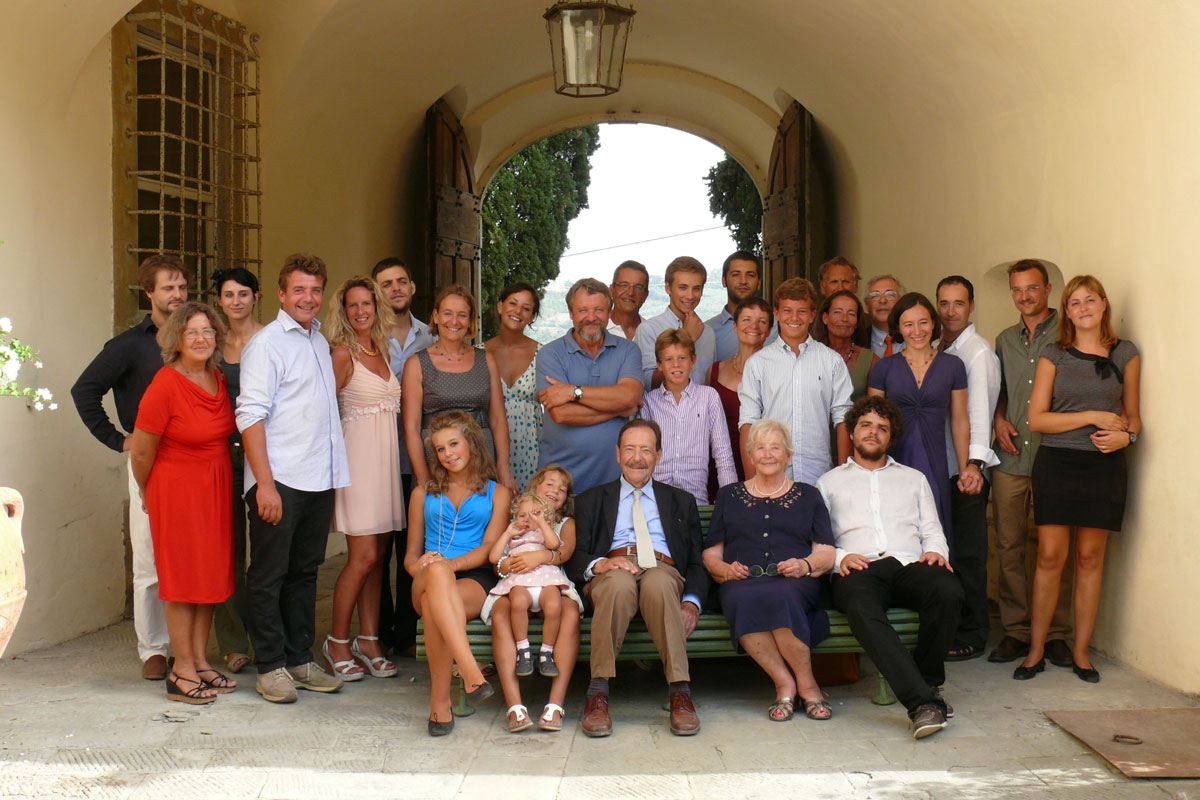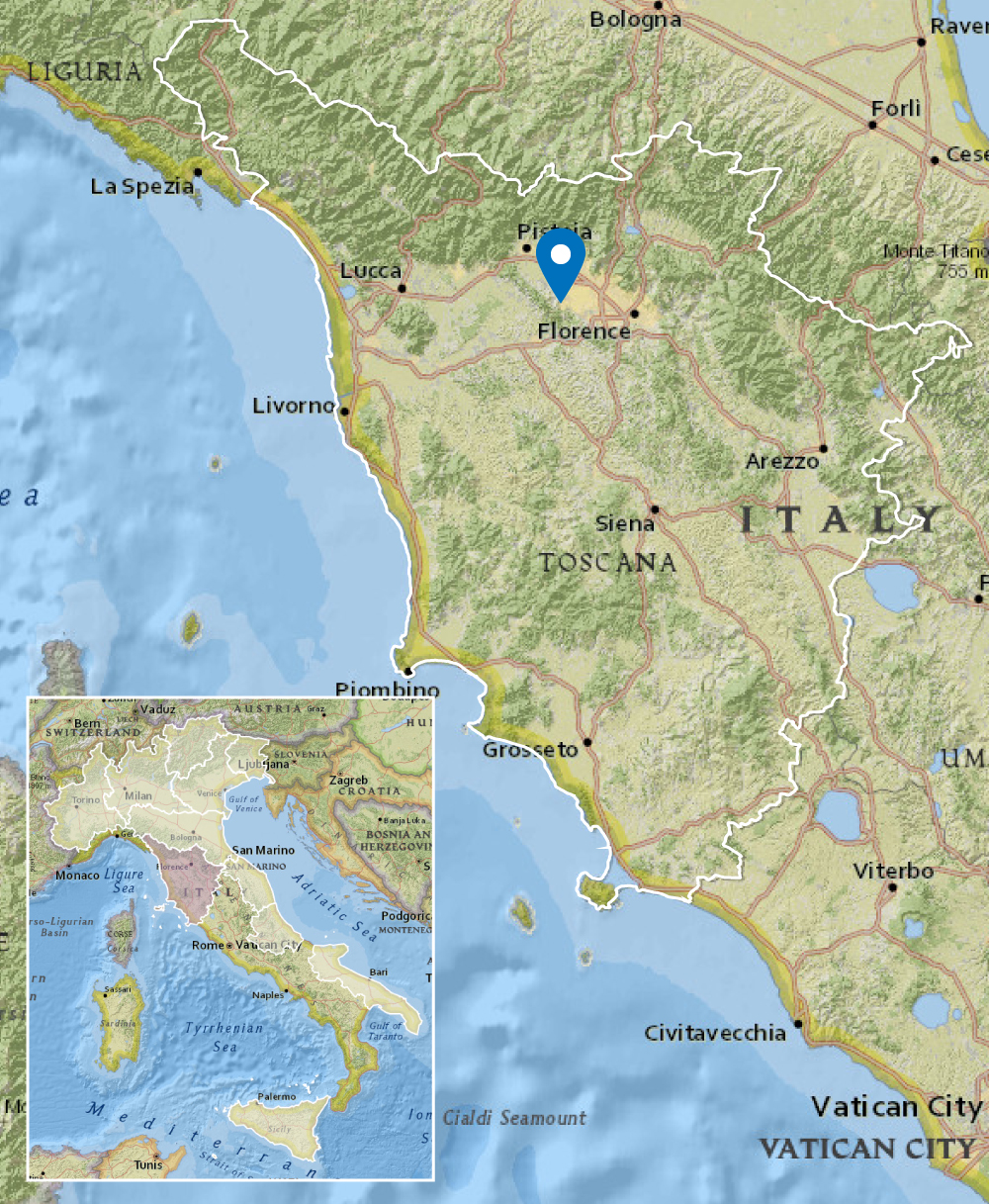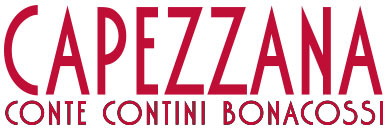| WINERY NAME: | CAPEZZANA |
| WINERY LOCATION: | Carmignano, Prato, Tuscany |
| VINEYARD LOCATION: | Carmignano, Tuscany |
| VINEYARD LAND: | 197 acres (80 ha) Estate: 670 acres (271 ha) |
| FARMING PRACTICES: | Certified Organic |
| GRAPE VARIETIES: | Sangiovese, Cabernet Sauvignon, Cabernet Franc, Canaiolo, Merlot, Syrah, Chardonnay, Trebbiano, San Colombano |
| WINE STYLES: | Dry red still, Dry Rosato, Sweet still |
| WINE REGIONS: | TUSCANY |
| TOTAL WINE PRODUCTION: | 400,000 - 450,000 bottles per year |
| YEAR FOUNDED: | 804 |
| OWNER(S): | Contini Bonacossi Family |
| WINEMAKER(S): | Benedetta Contini Bonacossi |
 |
Few wineries in the world possess the stature, respect and devotion that the Contini Bonacossi family has cultivated and maintained over five generations with their Tenuta di Capezzana winery. The estate is located 12 miles west of Florence in the Carmignano sub-zone, one of the oldest recognized wine producing areas in Tuscany. Ancient Etruscan artifacts have shown that grapevines were cultivated in the area for wine production over 3,000 years ago. The first reference to Capezzana dates to 804 A.D. An ancient parchment stored at the Florentine state archives shows the granting of a lease of vineyards and olive groves for the cultivation of wine and olive oil to a place called Capezzana. Over the centuries, the estate passed through several families. But the story of today’s Capezzana started when the Count Alessandro Contini Bonacossi and his family returned to Italy after living in Spain and purchased the estate from Raimondo Franchetti’s widow, Sara de Rothschild, in 1920. Not content with this original holding, Count Alessandro acquired the two neighboring farms, "The Poggetto" and "Trefiano," dividing the property into three distinct estates with more than 120 poderi. The winery was dedicated to the production of high-quality wine and olive oil with the first vintage of Villa di Capezzana in 1925. Augusto, Alessandro’s son, took over the management of the estate and in 1945, his son, Ugo, joined him. Ugo had completed a degree in Agriculture before heading to the War, and he was devoted to increasing the quality of the family’s wines – a notable endeavor during a time when most producers were still selling their grapes by weight. It was Ugo’s vision that gradually moved the estate away from sharecropping towards a modern-day winery. Carmignano was first incorporated into the Chianti Montalbano appellation; however, with a unique microclimate, soil composition and the use of international grapes, the Carmignano wines were very different than the Chianti being produced by their neighbors. Due to the tireless efforts of Count Ugo, DOC status was finally granted to Carmignano in 1975. In 1988 the appellation finally received DOCG recognition, making it the smallest DOCG in Tuscany. In order to qualify as a Carmignano DOCG wine, the blend needs to include a small amount of Cabernet Sauvignon (10-20%). In the 1500s, the Queen of France, Catherine de Medici, had clippings of Cabernet Sauvignon - then known as "uve Francesca" - sent to Carmignano from Bordeaux. Much of those plantings disappeared with the phylloxera epidemic, but Cabernet was replanted by Count Ugo in the 1950s. When Carmignano received DOC status in 1975, it became the first sanctioned wine to include Cabernet Sauvignon in Tuscany. A few other French varietals are planted in the region, but Cabernet is the preferred complement to their Sangiovese. The winery today is comprised of a Renaissance-era villa with historic cellars dating to the sixteenth century, a Frantoio for olive oil production, a Vinsantaia where the estate’s legendary Vin Santo is produced, and a fermentation cellar built in 1938 by architect Giovanni Michelucci. The estate’s landholdings expand 670 hectares—80ha of vineyards and 140ha of olive groves. In 2009, Capezzana began farming organically and achieved official certification for the vineyards and wines in 2015. Today, the estate is in the hands of Beatrice, Benedetta and Filippo Contini Bonacossi, fourth generation, and Serena and Gaddo Contini Bonacossi, fifth generation. Together they oversee all aspects of a family business that continues to maintain the stature, respect, and devotion that has been cultivated for centuries. |
 |
WINES IN THE CAPEZZANA PORTFOLIO
· Tenuta di Capezzana Trebbiano Toscana IGT
· Tenuta di Capezzana Barco Reale di Carmignano DOC · Tenuta di Capezzana Villa di Capezzana di Carmignano DOCG · Tenuta di Capezzana Trefiano Carmignano DOCG Riserva · Tenuta di Capezzana Ghiaie della Furba Toscana IGT · Tenuta di Capezzana Ugo Conti Bonacossi Toscana IGT · Tenuta di Capezzana Vin Santo di Carmignano DOC Riserva |

